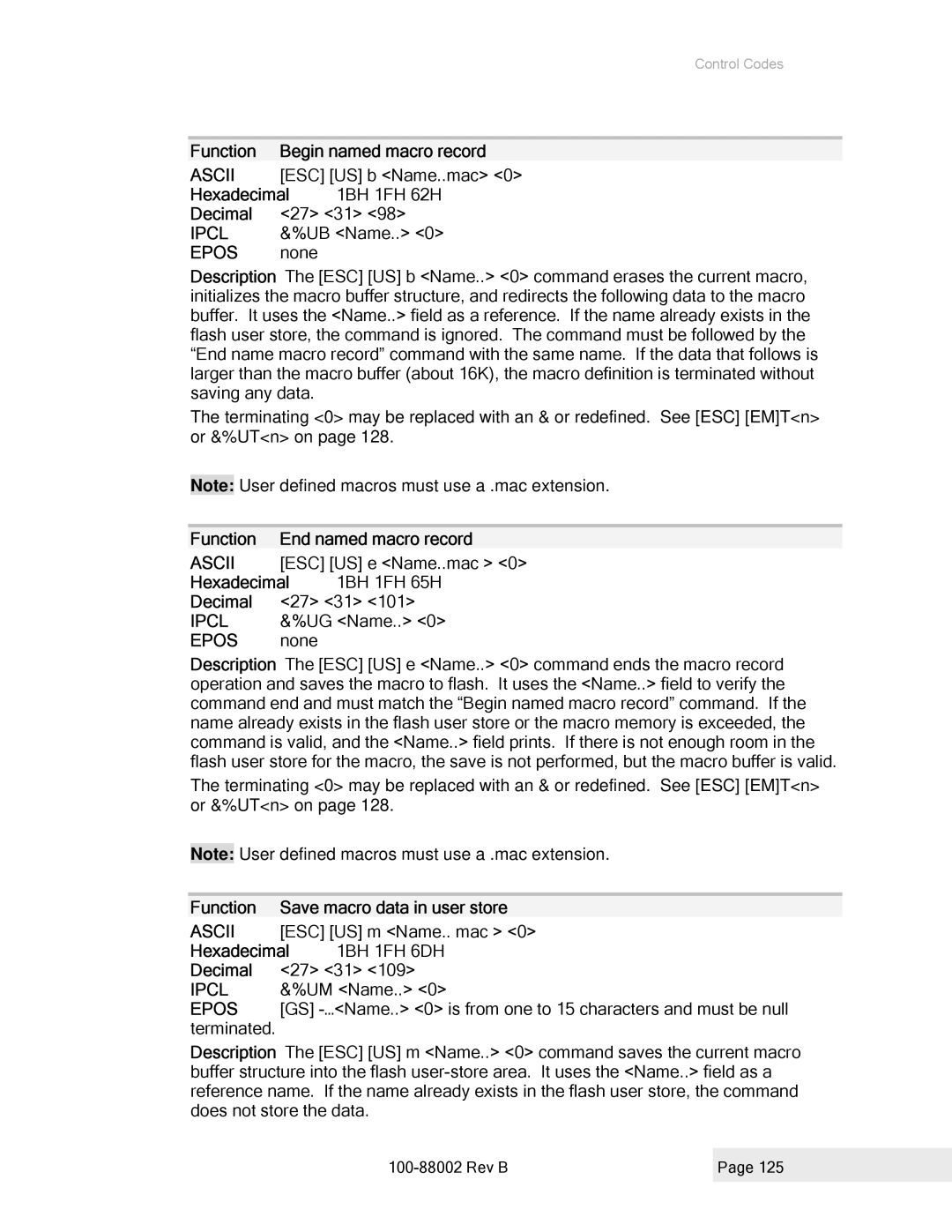
Control Codes
Function Begin named macro record
ASCII [ESC] [US] b <Name..mac> <0>
Hexadecimal 1BH 1FH 62H
Decimal <27> <31> <98>
IPCL &%UB <Name..> <0>
EPOS none
Description The [ESC] [US] b <Name..> <0> command erases the current macro, initializes the macro buffer structure, and redirects the following data to the macro buffer. It uses the <Name..> field as a reference. If the name already exists in the flash user store, the command is ignored. The command must be followed by the “End name macro record” command with the same name. If the data that follows is larger than the macro buffer (about 16K), the macro definition is terminated without saving any data.
The terminating <0> may be replaced with an & or redefined. See [ESC] [EM]T<n> or &%UT<n> on page 128.
Note: User defined macros must use a .mac extension.
Function End named macro record
ASCII [ESC] [US] e <Name..mac > <0>
Hexadecimal 1BH 1FH 65H
Decimal <27> <31> <101>
IPCL &%UG <Name..> <0>
EPOS none
Description The [ESC] [US] e <Name..> <0> command ends the macro record operation and saves the macro to flash. It uses the <Name..> field to verify the command end and must match the “Begin named macro record” command. If the name already exists in the flash user store or the macro memory is exceeded, the command is valid, and the <Name..> field prints. If there is not enough room in the flash user store for the macro, the save is not performed, but the macro buffer is valid.
The terminating <0> may be replaced with an & or redefined. See [ESC] [EM]T<n> or &%UT<n> on page 128.
Note: User defined macros must use a .mac extension.
Function | Save macro data in user store | |
ASCII | [ESC] [US] m <Name.. mac > <0> | |
Hexadecimal | 1BH 1FH 6DH | |
Decimal | <27> <31> <109> | |
IPCL | &%UM <Name..> <0> | |
EPOS | [GS] | |
terminated. |
|
|
Description The [ESC] [US] m <Name..> <0> command saves the current macro buffer structure into the flash
| Page 125 |
|
|
